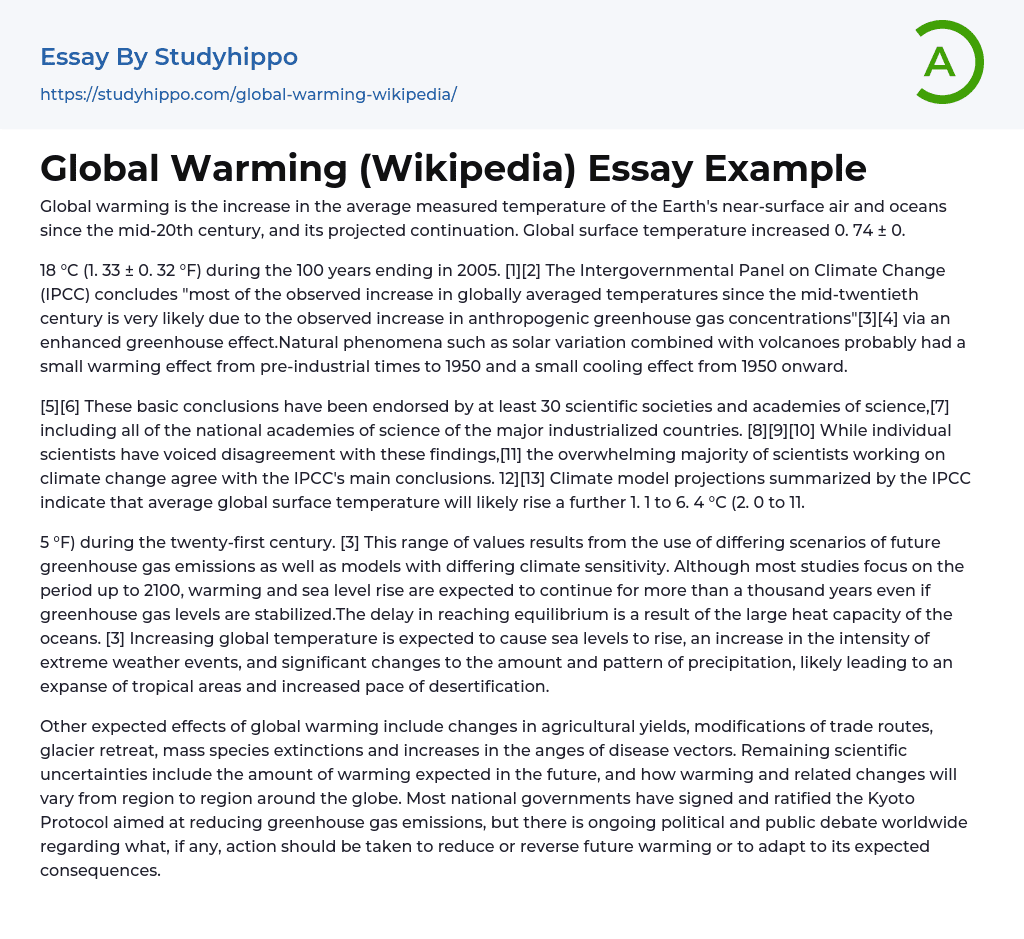Since the mid-20th century, there has been an increase in the Earth's air and ocean temperature near its surface, known as global warming. This phenomenon is being monitored and expected to continue, with a recorded average rise of 0.74 ± 0 in global surface temperature.
Before 1950, natural occurrences such as solar activity and volcanic eruptions may not have had a significant impact on global warming. However, after that year, these same events were thought to have a cooling effect. From pre-industrial times until 2005, there was an average temperature increase of about 18°C (1.33 ± 0.32°F). The Intergovernmental Panel on Climate Change (IPCC) attributes this rise mainly to the greenhouse gases produced by human activities that intensify the greenhouse effect.
Although a few scientists disagree, the scientific community widely supports the primary conclusions of IPCC on climate change. This support is stre
...ngthened by more than 30 scientific organizations and academies of science, including those from major industrialized nations. According to the IPCC's projections based on climate models, global surface temperatures are expected to increase between 1.1 to 6.4 °C (2.0 to 11.5 °F).
The possible rise in global temperatures during the twenty-first century depends on greenhouse gas emissions scenarios and climate sensitivity models. The estimated increase can vary from 1.5 to 5 degrees Fahrenheit and may persist for over a thousand years, even if greenhouse gas concentrations are stabilized due to the oceans' heat retention ability. This warming trend could lead to elevated sea levels, more severe weather patterns, changes in rainfall distribution that might accelerate desertification and expansion of tropical areas.
The effects of global warming are varied and can include modified agricultural yields, changes in trade
routes, melting glaciers, extinction of species, and an increase in disease vectors. Scientists are unsure about the extent of future warming and how it will affect different regions around the world. Despite the endorsement and ratification of the Kyoto Protocol to reduce greenhouse gas emissions, many governments globally debate whether they should take actions to mitigate or prepare for these changes.
- Animal Welfare essays
- Climate Change essays
- Conservation essays
- Global Warming essays
- Plastic essays
- Recycling essays
- Waste Management essays
- Zoo essays
- Air Pollution essays
- Carbon Dioxide essays
- Climate essays
- Deforestation essays
- Ecology essays
- Endangered Species essays
- Environmental Issues essays
- Environmental Protection essays
- flood essays
- Greenhouse Gas essays
- Hurricane essays
- Nature essays
- Pollution essays
- Renewable Energy essays
- Sustainability essays
- Tornado essays
- Traffic essays
- Tsunami essays
- Water Pollution essays




